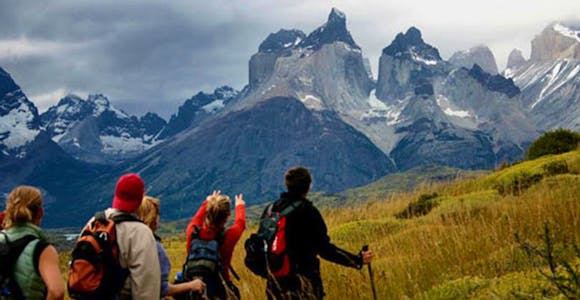
Hiking in Torres del Paine
World class hiking and trekking awaits in Torres del Paine National Park. From the iconic W Trek to the park’s most hidden corners, each valley, peak and pass is a treasure.
Discover MoreDeep roots in Patagonia: We are ex-guides, tour leaders, outdoor enthusiasts, & adventurers.
We’ve got our feet on the ground: Impartial advice, a bespoke service, and at no extra cost.
For the ends of the Earth: Sustainability is more than our carbon footprint (but we’re reducing that too).

With jagged peaks and illuminated glaciers juxtaposed with the rolling pampa and emerald forests, experiencing the natural beauty of Patagonia is truly remarkable. But this extraordinary landscape faces several threats; overgrazing from livestock, proposed hydroelectric dams, and something we're all participating in - tourism.
Here at Swoop, we all share a love for the extreme destinations in which we work. As a result, we work to make these places more accessible for people all over the world in order to share our own special experiences. But there are ways in which we can manage our impact and choose sustainable travel options so that we can maintain and protect the ecosystems that we value so much.
“We abuse land because we regard it as a commodity belonging to us. When we see land as a community to which we belong, we may begin to use it with love and respect.”
—Aldo Leopold
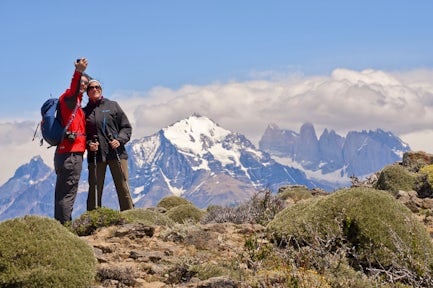
The biggest impact of visitors on the environment is erosion. Even the most careful hiker, when one of thousands, can contribute to the destruction of vegetation surrounding the trails. The harsh environment means that fragile plants, most easily trampled, take a long time to grow back.
The wilderness of Patagonia is also subject to the destructive impacts of forest fires. Since 1985, three man-made fires have ravaged almost ⅕ of the park. Nearly 45,000 hectares of native lenga tree forests have been destroyed in these fires, around the size of Barbados.
Another major environmental threat arises from increased waste as visitor numbers grow and campsites continue to operate at capacity throughout the season. Without composting toilets and a strict carry-out policy, the disposal of human waste continues to present itself as a problem.
If you’ll be adventuring around Torres del Paine, there are steps you can take to reduce your impact on the trails. Leave No Trace is a set of principles that can help guide you to becoming a steward of this land.
The following are a selection from the Leave No Trace Seven Principles. © 1999 by the Leave No Trace Center for Outdoor Ethics: www.LNT.org.
1. Plan ahead and prepare
2. Travel and camp on durable surfaces
3. Dispose of waste properly
Photo credit: Jimmy Ngo

Trail maintenance
4. Leave what you find
5. Minimize campfire impacts
6. Respect wildlife
Photo credit: Emily Hopcian

Maintaining flora on the trails
After two seasons of working in Torres del Paine National Park, the impact of tourism is clear. The need for sustainable practices - frequent trail maintenance, improved waste management, recycling, and more - is urgent. As visitors to this delicate and one-of-a-kind environment, we should take great care to leave the least amount of impact as possible.
Natascha Yogachandra Patagonia Specialist
The Legacy Fund is the first of its kind in Torres del Paine. Instead of trying to swim against the strong current of tourism in the area, the Legacy Fund leverages the powerful resources travelers can provide - volunteering and opportunities to donate to sustainable projects.
By creating powerful partnerships between local businesses and non-profits, the Fund has achieved a huge amount since its formation in 2014:
You can join their growing community of responsible visitors by making a donation at www.supporttdp.org. The Legacy Fund also creates volunteer opportunities for interested parties. If you’re interested, you can contact emily@supporttdp.org
Photo credit: Project Eudaimonia

Repairing the boardwalk

World class hiking and trekking awaits in Torres del Paine National Park. From the iconic W Trek to the park’s most hidden corners, each valley, peak and pass is a treasure.
Discover More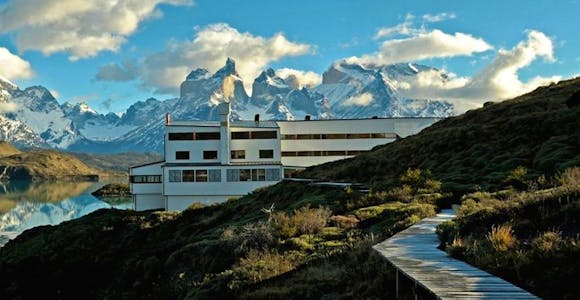
Torres del Paine National Park offers a wide range of accommodation. Stay at a refugios or campsites for a fun and traditional hiking experience. Learn about gaucho culture at an …
Discover More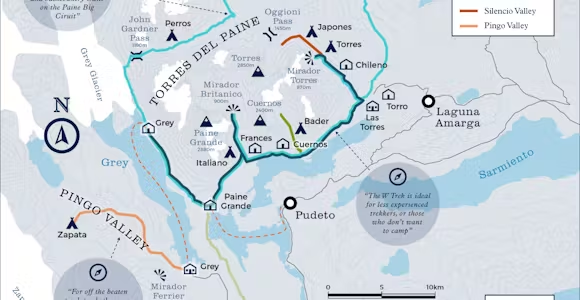
Maps of Torres del Paine National Park. Find the key routes and landmarks, and choose the best maps for trekking.
Discover More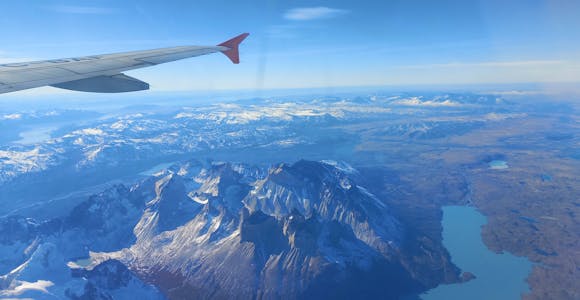
Whether you’re travelling from Santiago, Los Glaciares or beyond, Torres del Paine National Park is easy to get to from across Patagonia.
Discover MorePatagonia is a vast and varied region, with a wealth of things to see and do, a range of places to stay and a limited transport network.
Tap into 400,000 hours of lived experience. As guides, guardians and travellers, we know these incredible places intimately and care about them deeply. From a world of options, we'll help you discover your perfect adventure.
This website uses cookies to ensure you get the best experience on our website. Privacy policy